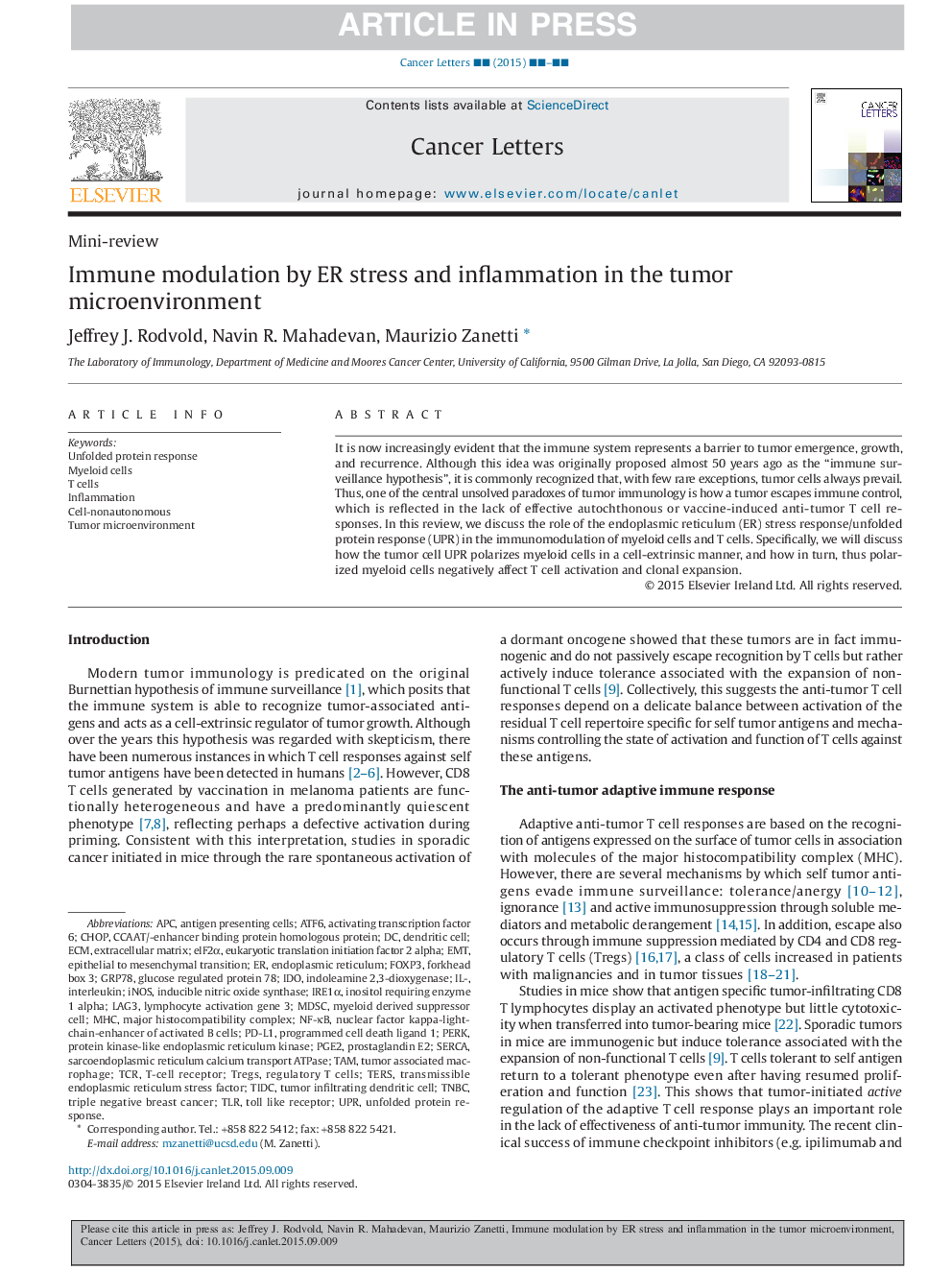| Article ID | Journal | Published Year | Pages | File Type |
|---|---|---|---|---|
| 10901041 | Cancer Letters | 2016 | 10 Pages |
Abstract
It is now increasingly evident that the immune system represents a barrier to tumor emergence, growth, and recurrence. Although this idea was originally proposed almost 50 years ago as the “immune surveillance hypothesis”, it is commonly recognized that, with few rare exceptions, tumor cells always prevail. Thus, one of the central unsolved paradoxes of tumor immunology is how a tumor escapes immune control, which is reflected in the lack of effective autochthonous or vaccine-induced anti-tumor T cell responses. In this review, we discuss the role of the endoplasmic reticulum (ER) stress response/unfolded protein response (UPR) in the immunomodulation of myeloid cells and T cells. Specifically, we will discuss how the tumor cell UPR polarizes myeloid cells in a cell-extrinsic manner, and how in turn, thus polarized myeloid cells negatively affect T cell activation and clonal expansion.
Keywords
GRP78iNOSPGE2APCTLRECMeIF2αATF6IDOUPRTregsTerSMDSCLAG3IL-TIDCprotein kinase-like endoplasmic reticulum kinaseNF-κBTNBCFOXP3PD-L1TCrIRE1αAntigen presenting cellsinflammationepithelial to mesenchymal transitioninterleukinindoleamine 2,3-dioxygenaseTAMeukaryotic translation initiation factor 2 alphatoll like receptorTumor associated macrophageEMTCHOPTriple negative breast cancerDendritic cellT cellsmyeloid derived suppressor cellMyeloid cellsRegulatory T cellsinducible nitric oxide synthaseendoplasmic reticulumnuclear factor kappa-light-chain-enhancer of activated B cellsactivating transcription factor 6SERCAprogrammed cell death ligand 1Extracellular matrixmajor histocompatibility complexMHCTumor microenvironmentUnfolded protein responseProstaglandin E2PERKLymphocyte activation gene 3glucose regulated protein 78T-cell receptor
Related Topics
Life Sciences
Biochemistry, Genetics and Molecular Biology
Cancer Research
Authors
Jeffrey J. Rodvold, Navin R. Mahadevan, Maurizio Zanetti,
